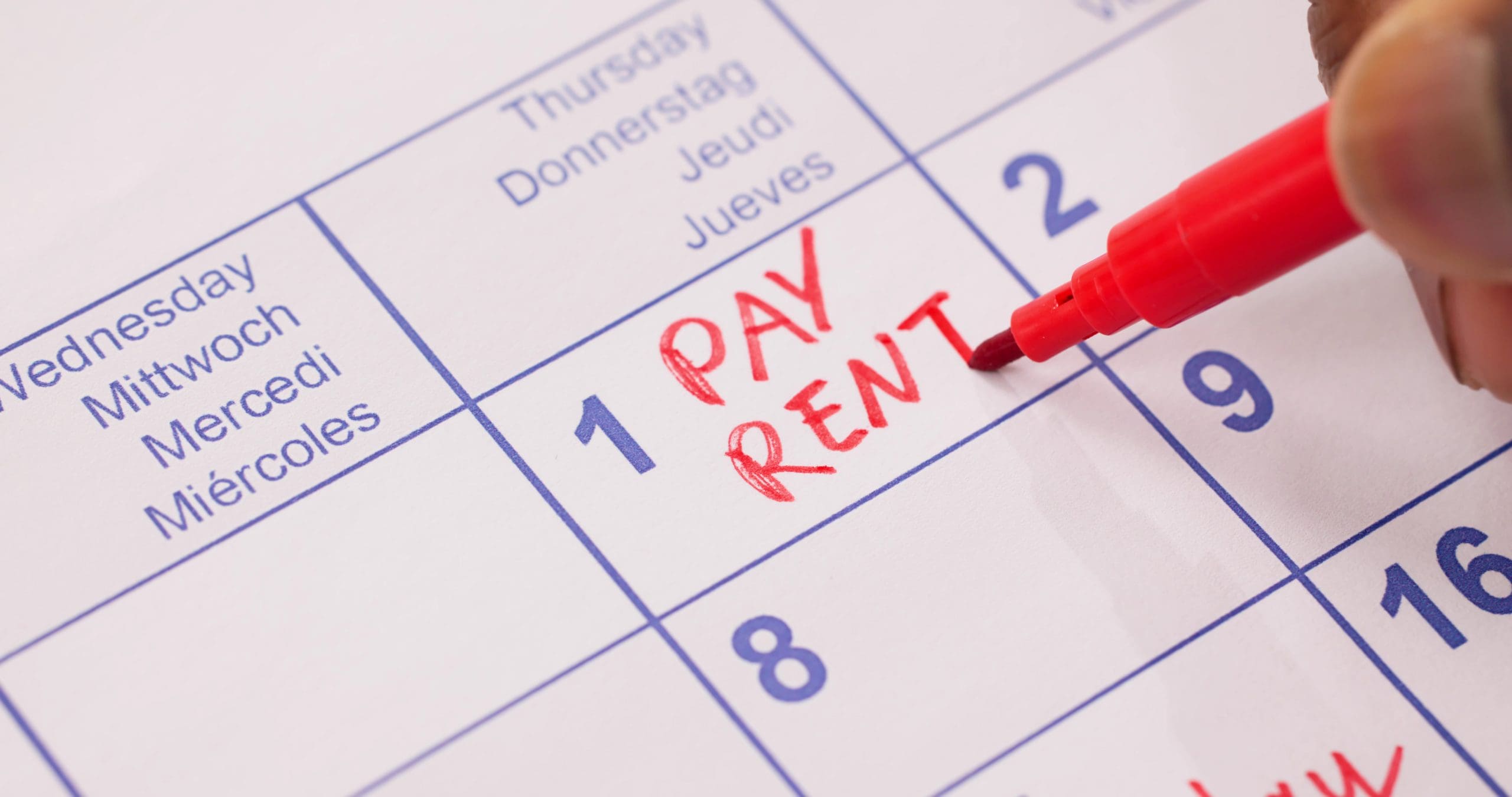Paying rent on time is a fundamental obligation for tenants. Whether you live in an apartment, house, or student housing, knowing your deadline for rent payment helps avoid late fees, penalties, and eviction risks.
Many renters assume rent is always due on the first of the month, but lease agreements vary. Some landlords offer flexible payment schedules, while others enforce strict billing cycles. Additionally, factors like notice periods, invoices, and collection processes affect how rent payments are handled.
This guide will walk you through typical rent due dates, grace periods, lease terms, payment methods, and financial planning tips.
Quick Summary
Understanding your rent billing cycle ensures financial stability. Most leases require payments on the first of the month, but some allow custom due dates, weekly schedules, or biweekly payments.
Grace periods help tenants avoid immediate penalties, but missing deadlines results in late fees, notices, and potential eviction risks. Setting up automated payments, budgeting for rent, and staying in communication with your landlord are key strategies to avoid financial difficulties.
Typical Rent Due Dates
The rent due date is typically outlined in your lease agreement. Here are the most common payment schedules:
First of the Month
- The most standard rent billing cycle for residential and commercial properties.
- Aligns with monthly paycheck schedules, making budgeting easier for tenants.
- Preferred by landlords for consistent invoice tracking and collection management.
15th of the Month
- Some landlords allow mid-month payments, which can be convenient for renters who get paid biweekly.
- Less common but used in specific rental markets and short-term lease contracts.
Weekly or Biweekly Rent Payments
- Common in student housing, shared rentals, and furnished apartments.
- Helps tenants manage rent payments in smaller, more frequent amounts.
- Some landlords prefer this model to reduce the risk of non-payment.
Custom Due Dates
- Some landlords allow tenants to negotiate their payment schedule to match their paycheck dates.
- More common in private rental contracts rather than property management companies.
Factors Influencing Rent Due Dates
Lease Agreement Terms
Your contract is a legally binding document that states the due date, billing cycle, grace period, late fees, and penalties.
Landlord’s Policies
Property owners and managers determine rent deadlines based on their invoice tracking and collection process.
State and Local Laws
Certain states regulate notice periods, penalty limits, and collection policies to protect tenants.
Tenant’s Pay Schedule
Some renters negotiate custom due dates to match their salary cycle, reducing financial strain.
Monthly vs. Weekly Rent Payments
Monthly Rent Payments
Pros:
- Most common in long-term lease agreements.
- Easier for tenants who receive a monthly paycheck.
- Typically due on the first of the month.
Cons:
- Larger lump-sum amounts can strain finances.
- Late fees may be higher due to a single large payment.
Weekly or Biweekly Rent Payments
Pros:
- Helps break rent into smaller, manageable amounts.
- Aligns well with biweekly salary schedules.
- Reduces the risk of missing a deadline.
Cons:
- Less commonly accepted in standard rental contracts.
- Harder to track multiple invoice payments per month.
Grace Period Policies
A grace period is the additional time a tenant has to pay rent before a penalty or late fee applies.
Common Grace Period Lengths
- 3 to 5 days: Most standard lease agreements allow a short grace period.
- Up to 10 days: Some landlords in competitive markets allow extended grace periods.
- No grace period: Some rental agreements require rent to be paid strictly on the due date.
Why Do Grace Periods Exist?
- Prevents immediate penalty enforcement for tenants facing minor delays.
- Ensures compliance with tenant protection laws in certain states.
- Allows for processing delays in banking transactions or automated payments.
What Happens After the Grace Period?
- Late fees are added to your invoice.
- Landlords may issue a notice of overdue rent.
- Repeated missed payments could trigger an eviction notice.
Late Fees and Penalties
Missing rent payments can result in serious financial consequences.
Common Late Fee Structures
- Fixed Fee: A standard penalty charge (e.g., $50–$100).
- Percentage-Based Fee: 5%–10% of the total rent.
- Daily Late Fee: Increasing charges per day (e.g., $10/day past the deadline).
Consequences of Late Rent Payments
- Risk of legal action or eviction notice.
- Billing cycle disruption affecting future rent payments.
- Potential impact on credit score and rental history.
How to Avoid Late Fees
- Set up automated rent payments.
- Use reminder apps or calendar alerts.
- Communicate with your landlord about potential delays.
Rent Payment Methods
Different landlords accept different billing methods.
Common Payment Options
- Online Payment Portals: Services like Zelle, PayPal, or rental management platforms.
- Bank Transfers & ACH Payments: Direct deposit to the landlord’s account.
- Checks & Money Orders: Traditional invoice-based payment method.
- Cash Payments: Less common—always request a receipt for proof of payment.
Setting Up Automated Payments
Automated rent payments reduce the risk of missing your deadline.
Steps to Set Up Auto-Pay
- Verify if your landlord offers online billing options.
- Use your bank’s scheduled payment feature.
- Monitor your account to avoid overdraft fees.
Benefits of Automated Payments
- Ensures on-time payments.
- Avoids late fees and penalties.
- Reduces stress related to manual invoice tracking.
Communication with Landlords
If you anticipate late payments, discuss your situation with your landlord before the deadline.
How to Discuss Late Rent Issues
- Provide advance notice of potential payment delays.
- Request a grace period extension.
- Keep written records of contract modifications or agreements.
Managing Finances for Rent Payments
Rent is often a tenant’s largest recurring expense. Proper planning prevents financial stress.
Budgeting Tips
- Allocate 30% of your income to rent.
- Maintain an emergency fund for unexpected expenses.
- Use budgeting apps and calendar reminders for payment tracking.












